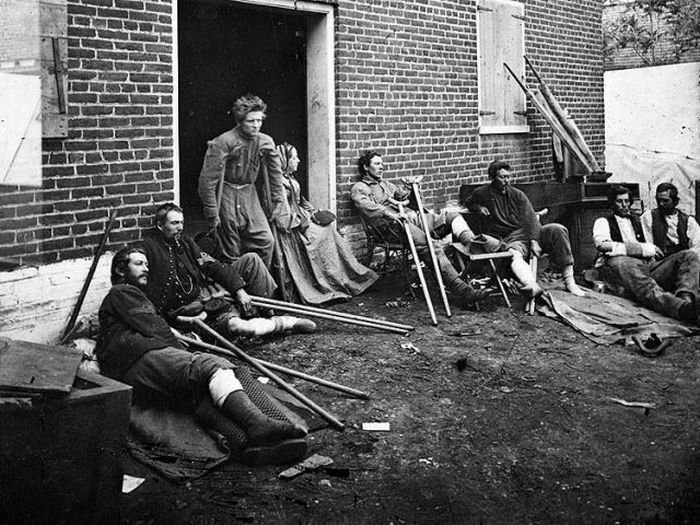|
|
History: American Civil War (1861-1865)
|
Sectionalism refers to the different economies, social structure, customs and political values of the North and South. It increased steadily between 1800 and 1860 as the North, which phased slavery out of existence, industrialized, urbanized and built prosperous farms, while the deep South concentrated on plantation agriculture based on slave labor, together with subsistence farming for the poor whites. The South expanded into rich new lands in the Southwest (from Alabama to Texas). However, slavery declined in the border states and could barely survive in cities and industrial areas (it was fading out in cities such as Baltimore, Louisville and St. Louis), so a South based on slavery was rural and non-industrial. On the other hand, as the demand for cotton grew the price of slaves soared. Historians have debated whether economic differences between the industrial Northeast and the agricultural South helped cause the war. Most historians now disagree with the economic determinism of historian Charles Beard in the 1920s and emphasize that Northern and Southern economies were largely complementary.
Fears of slave revolts and abolitionist propaganda made the South militantly hostile to abolitionism. Southerners complained that it was the North that was changing, and was prone to new "isms", while the South remained true to historic republican values of the Founding Fathers (many of whom owned slaves, including Washington, Jefferson and Madison). Lincoln said that Republicans were following the tradition of the framers of the Constitution (including the Northwest Ordinance and the Missouri Compromise) by preventing expansion of slavery. The issue of accepting slavery (in the guise of rejecting slave-owning bishops and missionaries) split the largest religious denominations (the Methodist, Baptist and Presbyterian churches) into separate Northern and Southern denominations. Industrialization meant that seven European immigrants out of eight settled in the North. The movement of twice as many whites leaving the South for the North as vice versa contributed to the South's defensive-aggressive political behavior.
Nationalism and honor
Nationalism was a powerful force in the early 19th century, with famous spokesmen like Andrew Jackson and Daniel Webster. While practically all Northerners supported the Union, Southerners were split between those loyal to the entire United States (called "unionists") and those loyal primarily to the southern region and then the Confederacy. C. Vann Woodward said of the latter group, "A great slave society...had grown up and miraculously flourished in the heart of a thoroughly bourgeois and partly puritanical republic. It had renounced its bourgeois origins and elaborated and painfully rationalized its institutional, legal, metaphysical, and religious defenses....When the crisis came it chose to fight. It proved to be the death struggle of a society, which went down in ruins." Insults to Southern national honor included Uncle Tom's Cabin (1854) and John Brown in 1859.
|
|









